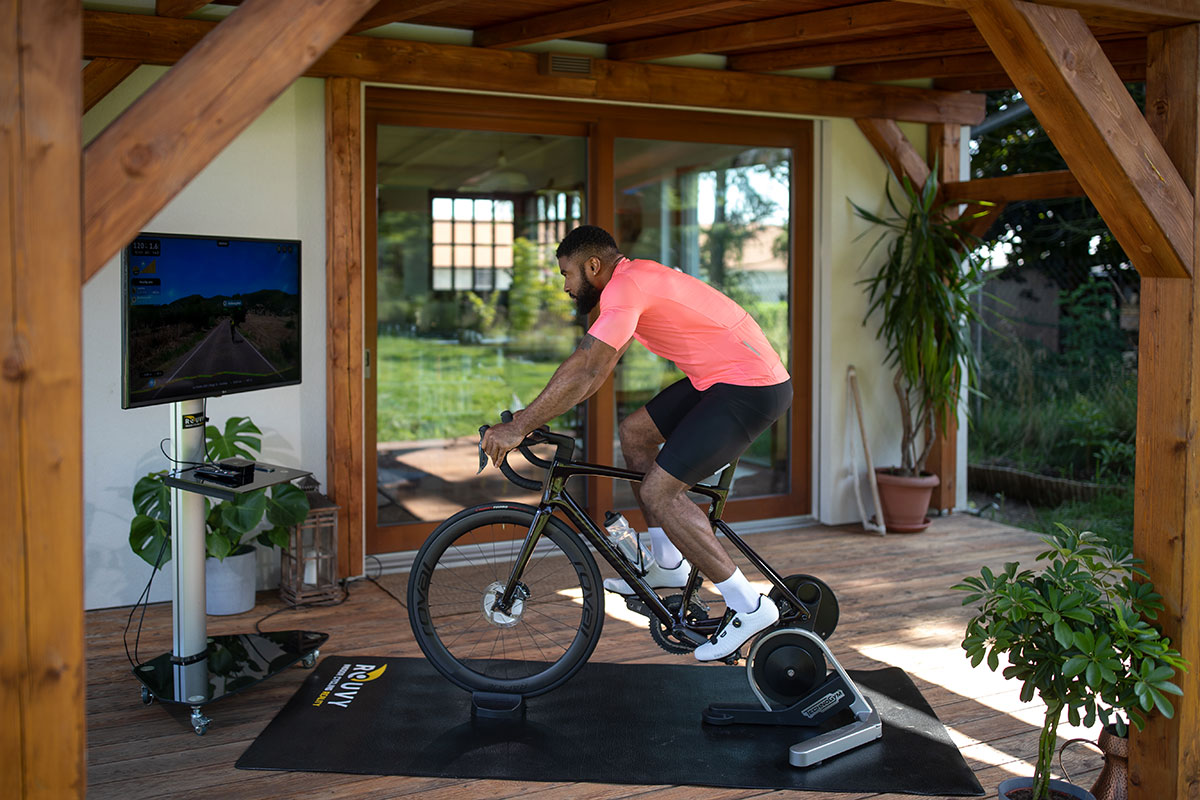Training and Accountability - the role of training plans, consistency and turning up in cycling performance
Being accountable results in the consistency of cycle training to help you achieve your goals. Here’s how to ‘own it’ in 2023 for (nearly) guaranteed race success…

‘The price of greatness is responsibility.’ So said Winston Churchill. It’s a similar sentiment for road cyclists when it comes to goal-setting. Or should we say goal-getting. For the riders who reach, nay surpass, their targets are the ones who realise that, ‘The price of greatness is accountability.’ Let us explain…
‘Accountability in cycling terms is a feeling that someone aside from you has a stake in your training journey,’ says top cycling coach Phil Mosley. ‘No matter how self-motivated you are, there’ll always be times when you won’t feel like training. The idea that someone else is invested in your training can be the difference between skipping a session and getting it done.’
It's something we can all relate to. The alarm rings, though it’s drowned out by the deluge outside. You’ve pencilled in an hour-plus ride with you, yourself and I. Cue rolling over, pulling the duvet up and drifting back to sleep. A similar scenario with a group of you and that extra element of not letting down your comrades – and, in turn, yourself – sees you wearily slip into your Lycra for what turns out to be a glorious ride. I mean, unless your ride’s regularly punctuated by punctures, when’s a ride not a glorious ride.
Seeking consistency
Ultimately, the aim of being accountable is to deliver consistent training as no matter what lay-up of carbon your pride-and-joy’s made from or the ratio of different sugars swilling around in your energy drink, that is key to reaching your goals.
‘When you’re preparing for cycling events, you’re always doing one of three things: training, recovering or detraining,’ Mosley explains. ‘If you train consistently enough, you’ll train and recover, whereas if you’re consistent you’ll have periods of detraining. It’s like taking two steps forward and one back. Think of each completed workout as being another jelly bean in the jar. The fuller the jar, the fitter you become. Will you be adding one jelly bean per week or three? That’s up to you, but the more consistently you train, the more jelly beans you’ll accumulate.’
Research supports Mosley’s jelly-bean analogy. Take a 2016 study in the Journal of Science and Medicine in Sport where a track-and-field athlete’s chances of success significantly reduced for every modified training week. For modified, read injured or ill. There are similar studies into an athlete’s success, or not, at the Olympics.
So, as Mosley said, having someone else invested in your training, be it a coach or training partner(s), is a good start. But, as you’d expect in our high-tech age, this accountability doesn’t have to focus solely on a human being.
Get The Leadout Newsletter
The latest race content, interviews, features, reviews and expert buying guides, direct to your inbox!
‘I use an online coaching app called TrainingPeaks,’ says Mosley. ‘It has a traffic-light feature that’s really effective when it comes to keeping athletes accountable. When you do a 100% of planned session, the workout turns green in the calendar. When you only complete part of it, it turns amber. And if you miss it altogether, it turns red.
‘When you look at your training calendar, you see all these green, amber and red workout boxes. People hate seeing the red and amber boxes because it makes them feel like they’ve got a bad school report. They only want to see green boxes and it’s surprisingly motivational.’
Of course, other online software companies are available! But whatever your form of accountability, be it computer-based or not wanting to let down your mate Tim Podcock, your training will receive a consistent boost if you adhere to the SMARTER framework.

Ride SMARTER
This achievement-based acronym breaks down as: Specific – make each goal as precise as possible; Measurable – how you quantify your current position and determine the improvement required; Accepted – goals need to be shared and negotiated with others; Realistic – the goal is realistic yet challenging; Time phased – date is set for when the goal is to be achieved by; Exciting – must motivate; Recorded – the goal and progress toward it written down. It’s a proven base to build performance.
There’s also the SCALED UP model, which is similar but with subtle tweaks. It’s Specific; Clear, so you’re not tempted to change when it gets hard; Achievable; Layered – when you focus solely on outcome, you develop unrealistic future expectations and these reduce your confidence, increase anxiety and cause poor performance, so you need to set performance and process goals (like honing in on a skill) to develop more realistic expectations; Exciting; Deadline; U – focused as much as possible on things you can control; Positive – focusing on what you’re trying to achieve, not on what you want to avoid.
Whichever model you choose, working your way through each will begin firming up your plans, lead to consistent training and, ultimately, make you more accountable.
Which is all very well, of course, but as that 2016 study highlighted, one of the biggest stumbling blocks to goal-getting is injury. This can be a real kick in the chamois, resulting in a psychological blow that’s often harder than the physical one.
‘Don’t worry,’ says Mosley. ‘If you’re injured and can’t cycle, it’s important to keep the exercise habit going. Depending on your injury, that might be strength work, rehab, swimming or simply walking. Do it in the time gap you’d previously put aside for cycling. That way, you’ll easily slot back into your cycling routine as soon as you’re able.’
As you can see, there are myriad ways to make you more accountable and a more consistent trainer. All of this is designed to help you reach your goals and become a happier human being. And that last point’s key. Ultimately, cycling is your hobby, not your job.
As Mosley concludes, ‘Too much consistency can occasionally be counter-productive. I’ve known cyclists who’ve trained super hard for a couple of years and then given up altogether because it’s become “too much”. It’s important to ensure that your training fits easily into your lifestyle so it’s not stressful. You want it to be enjoyable as that’ll help you achieve consistency over the long term.’
